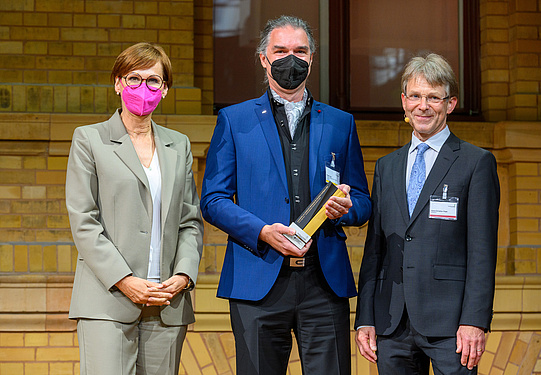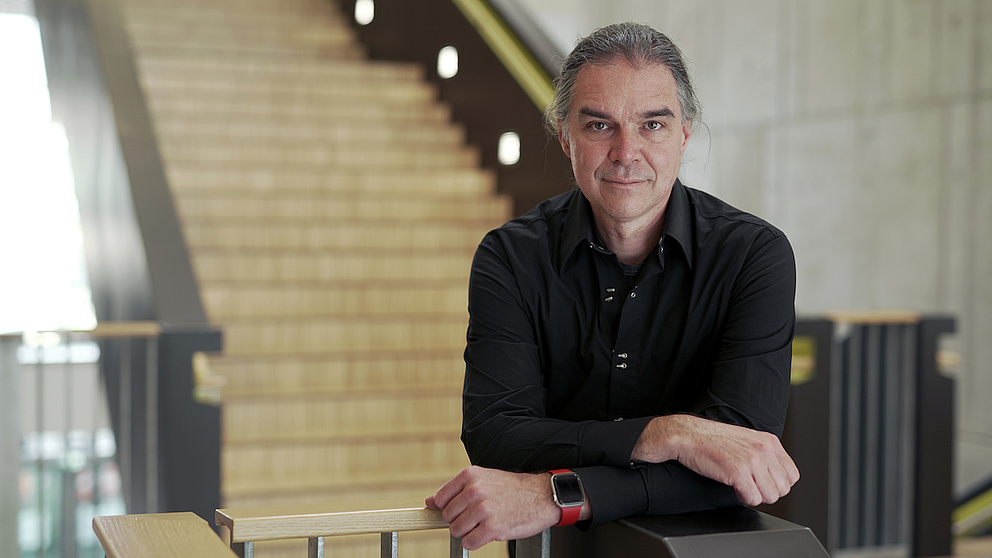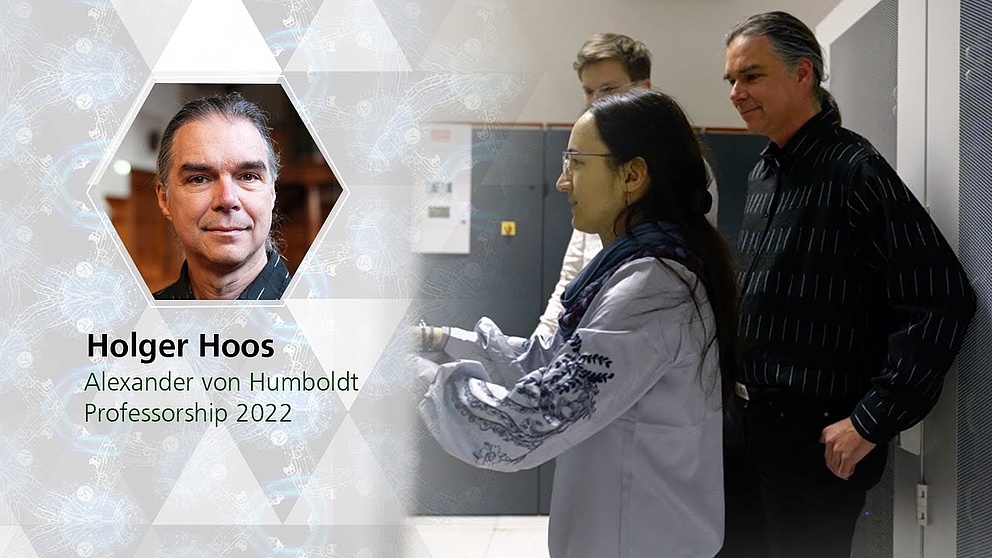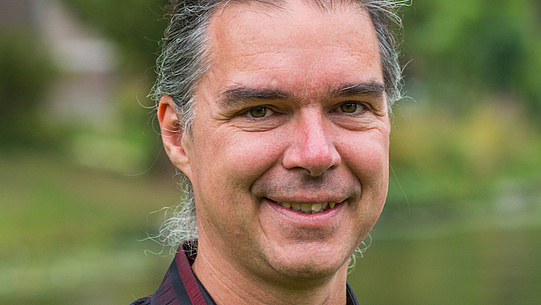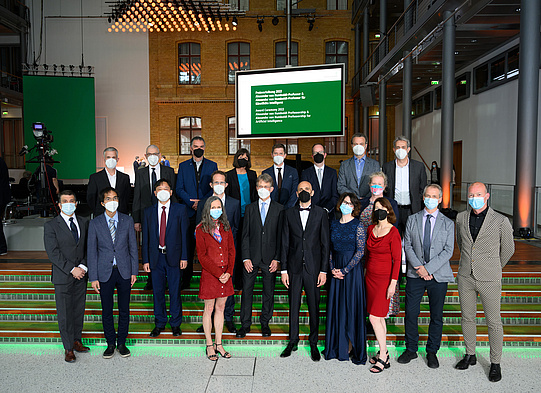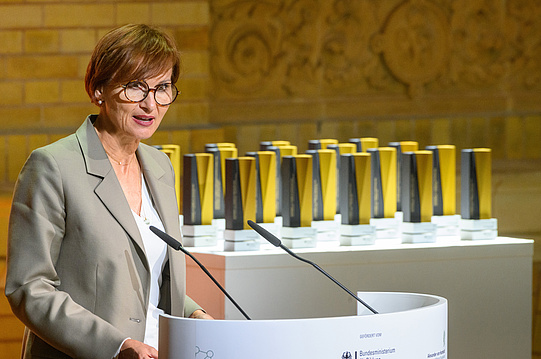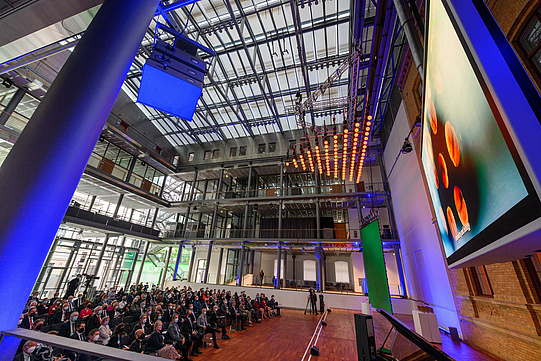Jump to the content
- {{#headlines}}
- {{title}} {{/headlines}}

Contact
Press, Communications and Marketing
Tel.: +49 228 833-144
Fax: +49 228 833-441
presse[at]avh.de
Machine learning
Whether in medicine, in the fight against climate change or to protect natural resources, ideally, AI should expand human intelligence for the benefit of our societies and the planet a whole. AI systems, however, are extremely complex and difficult to comprehend. In comparison with the volume of potential applications, there are just too few experts who can construct and optimise algorithms, develop models and build AI systems that can be used reliably and safely in various areas of our lives. The risk is that they only benefit a few people or that monopolies are created.
But there is solution to this problem: Holger Hoos is one of the driving forces behind developments in automated machine learning (AutoML). What this involves are applications which automatically trigger certain processes in machine learning, such as data preparation, the selection of ML algorithms or the optimisation of hyperparameters. Automated machine learning means the time and personnel necessary to programme AI applications can be reduced. Moreover, less specific knowledge of ML and programming is required to develop machine learning systems, which opens up broader access to transformative, future-looking AI technologies. Holger Hoos’s pioneering work in this field is being commercially exploited by companies like IBM and Amazon.
Holger Hoos views his fundamental research as a service to “humane AI” that seeks to improve the lives of as many people as possible. As he sees it, the right balance must be struck between the commercial interests of industry and the interests of individuals. He thinks European AI research has great potential and is therefore on the board of the Confederation of Laboratories for AI Research in Europe (CLAIRE) of which he is a founding member. CLAIRE’s mission is to strengthen and promote excellence in AI research in Europe; in 2021 it was awarded the German AI Prize.
In his role as Distinguished Scientific Director of RWTH University’s AI centre, one of Hoos’s activities will be to chaperone the establishment of a trinational research alliance in Belgium, the Netherlands and Germany. The focus of his research will be the further development of methods for the automated design, analysis and deployment of AI systems. In cooperation with Forschungszentrum Jülich, these methods are destined for applications in a broad range of academic disciplines as well as in industry.
Brief bio
Professor Dr Holger Hoos studied informatics at TU Darmstadt, completing his doctorate in 1996. He is an Adjunct Professor in the Computer Science Department at the University of British Columbia, Vancouver, Canada, where he held a full professorship between 2000 and 2016. Since 2016, he has been a professor of machine learning at the Leiden Institute of Advanced Computer Science (LIACS) at Leiden University in the Netherlands. He is a fellow of the Association for Computing Machinery (ACM), the Association for the Advancement of Artificial Intelligence (AAAI) and the European Association for Artificial Intelligence (EurAI).Photos and videos
